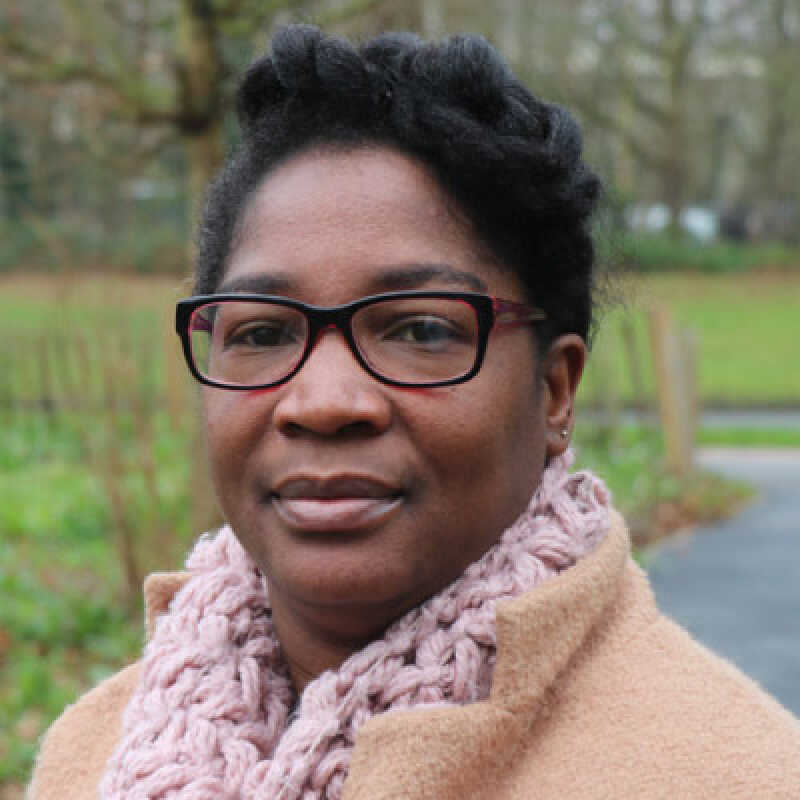- University of Kent
- Conservation at Kent
- People
- Rachel Gefferie
Rachel Gefferie


PhD project: 'Krioro libi': Exploring continued social identity in the life of the Creole of Suriname through the embodiment of food traditions
Many studies have shown food to be a valuable resource for qualitative knowledge on personal and group identity (Wilk, 1999). Through its existence as a substance and its symbolism, it serves not only as nutrition for the body, but also as a medium for establishing, absorbing and sustaining social life and social identity, at all levels (Mars and Mars 1993, 11). This research focuses on Creole families identified in Suriname with their relatives living in the Netherlands. In this journey, food serves as a mediator to channel the preservation, transmission and prolongation of the Surinamese-Creole life from the homeland to the diaspora community in the Netherlands.
Current debates amongst the African-Surinamese diaspora in the Netherlands raise the need for new insights on the African-Surinamese identity. Transnationalism helps feed this need as this identity became fluid and changeable in the diaspora. The debates specifically question the presence of Africanism in the life of the Surinamese-Maroon and the Surinamese-Creole descendants, both being of African-descent. Especially the creole identity is subject to heated debate.
Therefore, with reference of the negative connotation to the notion of Creolisation, the research will specifically focus on exploring and revisiting earlier studies of Creole identity and Creole families by thinkers such as Melville Herskovits and Richard Price, and bring it up to date with the everyday life experience and life interpretations of the creole people in contemporary Suriname. The aim is to feed the need for answers and new insights for those in the diaspora, providing them with the opportunity to have a foundation on which they can further build while recreating their life in the Netherlands.
Through collective memory people construct their surrounding place. Whether the memory of this common place is territorial or just based on transported cultural ideas, the fact remains that the shared traditions and beliefs lead to the representation of a space or locality that can be remembered collectively.
The study in Suriname aims to observe inherited life narratives, ways of implementing life, family relations, and social and gender roles encoded in food practices among the Creoles.
The ambition is to contribute towards the need for a more contemporary interpretation of ‘being a Creole’ among the young generation of Creoles in Suriname and the Netherlands. After all, due to the increase in social mobility and geographic mobility, one cannot expect the identity of a person to remain static. People become more aware in taking ownership of their own history, creating their own ancestral stories and resisting the idea of having to stay mute because of being a minority.
The 2 main questions leading the research are:
- In what ways do food practices act as modes of constituting personal identity, belonging and well-being among the Creole families in Suriname?
- How do familial relations between people in diaspora and the homeland structure people’s sense of belonging in the diaspora community of Surinamese Creole in the Netherlands?
Methodology
By applying multi-sited ethnographic methods, the influence between the Creoles in Suriname and their family members in the diaspora community in the Netherlands will be studied. The same research methods applied in Suriname will be applied in the Netherlands. After which a comparative analysis will be done to visualise the influence of transnationalism on the Surinamese-Creole identity and to create a framework reflecting the newly gained insights relevant for the current debates on the African-Surinamese identity.
Supervisor(s)
Dr Anna Waldstein
Professor João de Pina-Cabral
Loading publications...
Showing of total publications in the Kent Academic Repository. View all publications